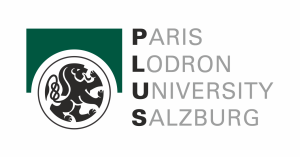Paris-Lodron University Salzburg
The Department of Geoinformatics is an integral part of the Faculty of Digital and Analytics Sciences (DAS), which bundles the university’s competences at the core of the digital age: Artificial Intelligence & Human Interfaces, Computer Science, Geoinformatics, and Mathematics. Faculty and Department play an active role in a large variety of both fundamental and applied research projects as well as interdepartmental degree programmes; thus contributing to a university profile marked by digitalization, cooperation, and interdisciplinarity. The Christian Doppler Lab for Geospatial Information for Humanitarian Action in partnership with Doctors Without Borders (MSF) is one example. With an active role in the European University alliance CIVIS network, particularly in the challenge area of digital and technological transformation. We reach out to the general public, to industry and authorities via the iDEAS:lab. The Department of Geoinformatics is co-founder of the Copernicus Academy, a network of academic (and non-academic) partners promoting the use of Earth observation data and information services for various application domains and public goods. We actively shape a large-scale partnership in the EO*GI downstream sector of the European Space domain.
In the joint Master of Science programme the Department provides introductory and advanced courses in Geoinformatics and Remote Sensing and hosts the programme office. Students graduate, next to CDE, from the highly regarded MSc and/or PhD in Applied Geoinformatics programmes. In-service professionals and lifelong learners register for the UNIGIS postgraduate distance learning certificate or Bachelor ‘Digitalisierung – Innovation – Gesellschaft’ (in German). In the Geography teacher-training curriculum the Department contributes the spatial methods and techniques modules. Additionally, a minor (certificate) in Geographic Information Systems is offered to students from other disciplines. Research-driven education is a key principle in teaching at the Department. More than eighty faculty members of the Department coordinate and partner with experts in a great variety of Earth Observation and Geoinformatics research and education projects. EO analytics, spatial simulation, geosocial media analytics, spatial image analysis, process modelling and sensing, network analysis and routing, etc. are key activities in seven highly profiled research areas.
latest update: March 25, 2024






